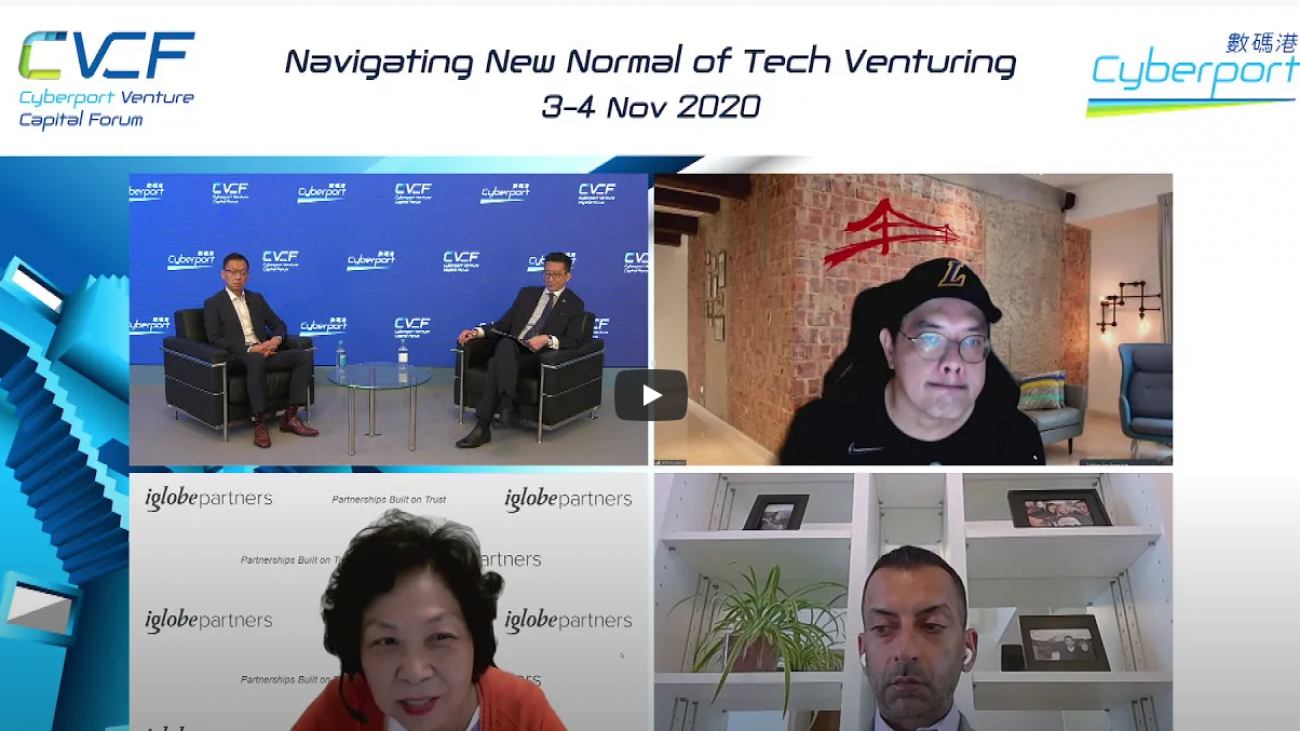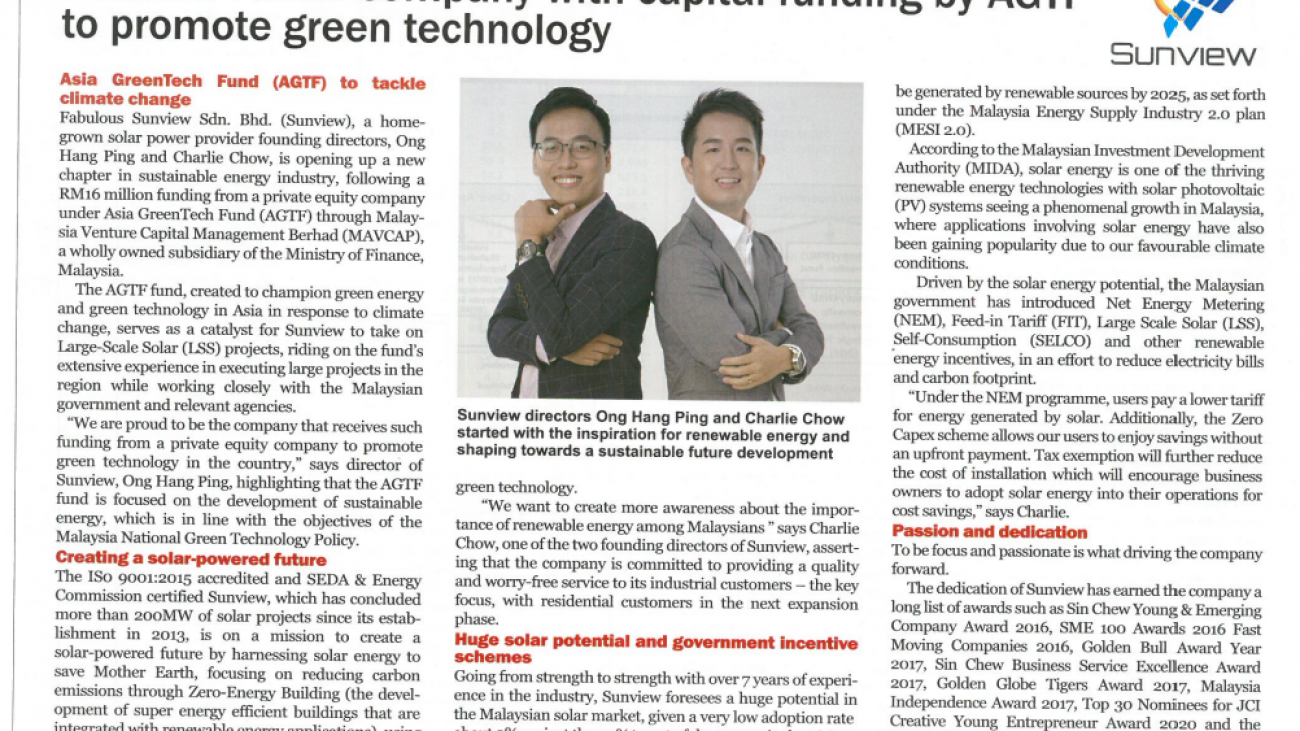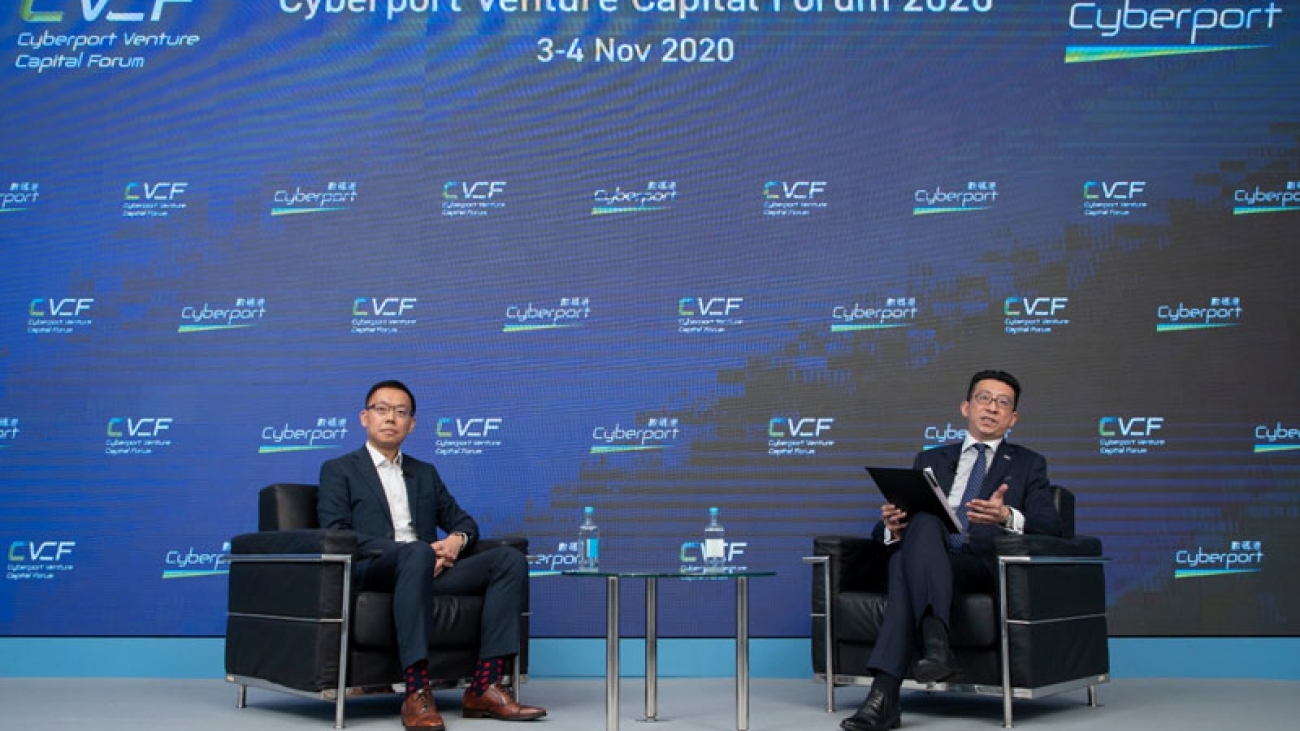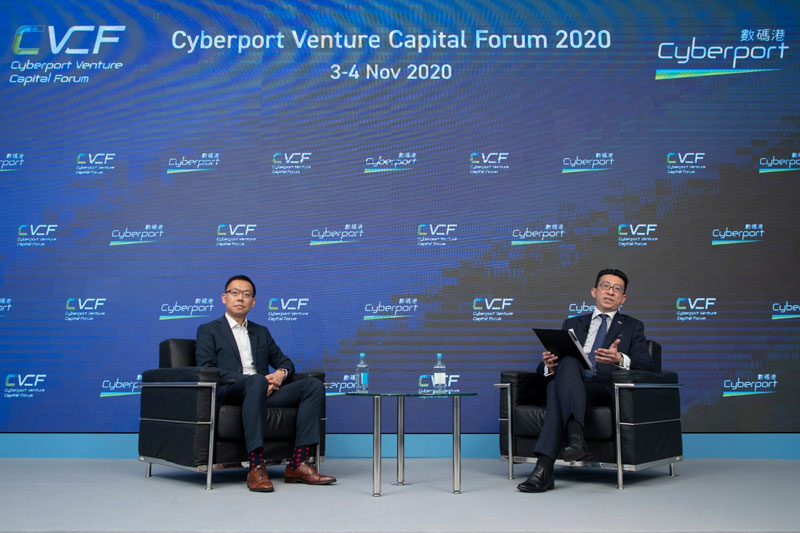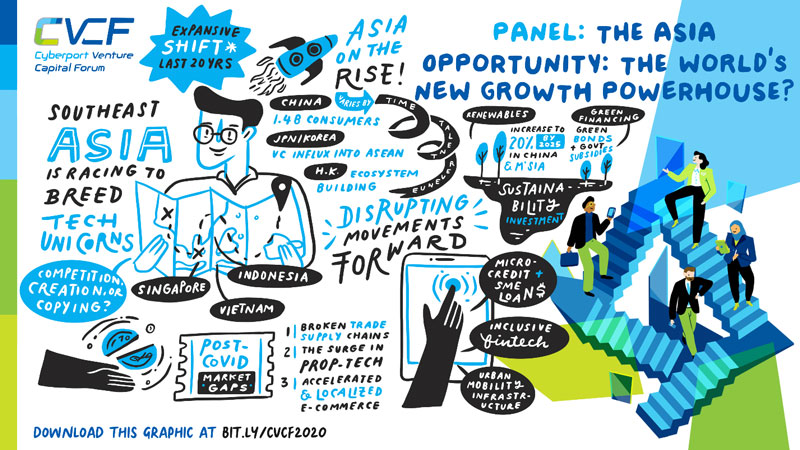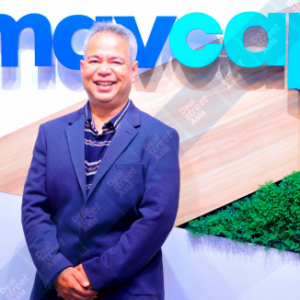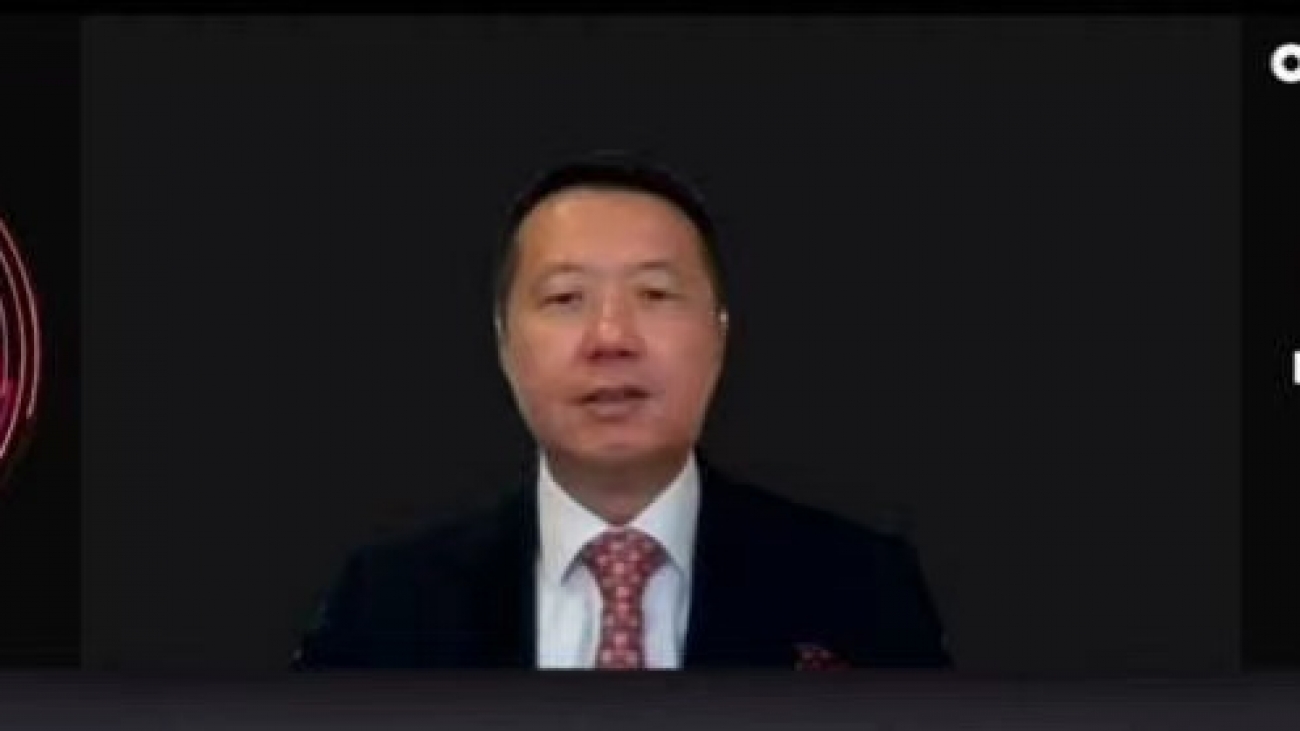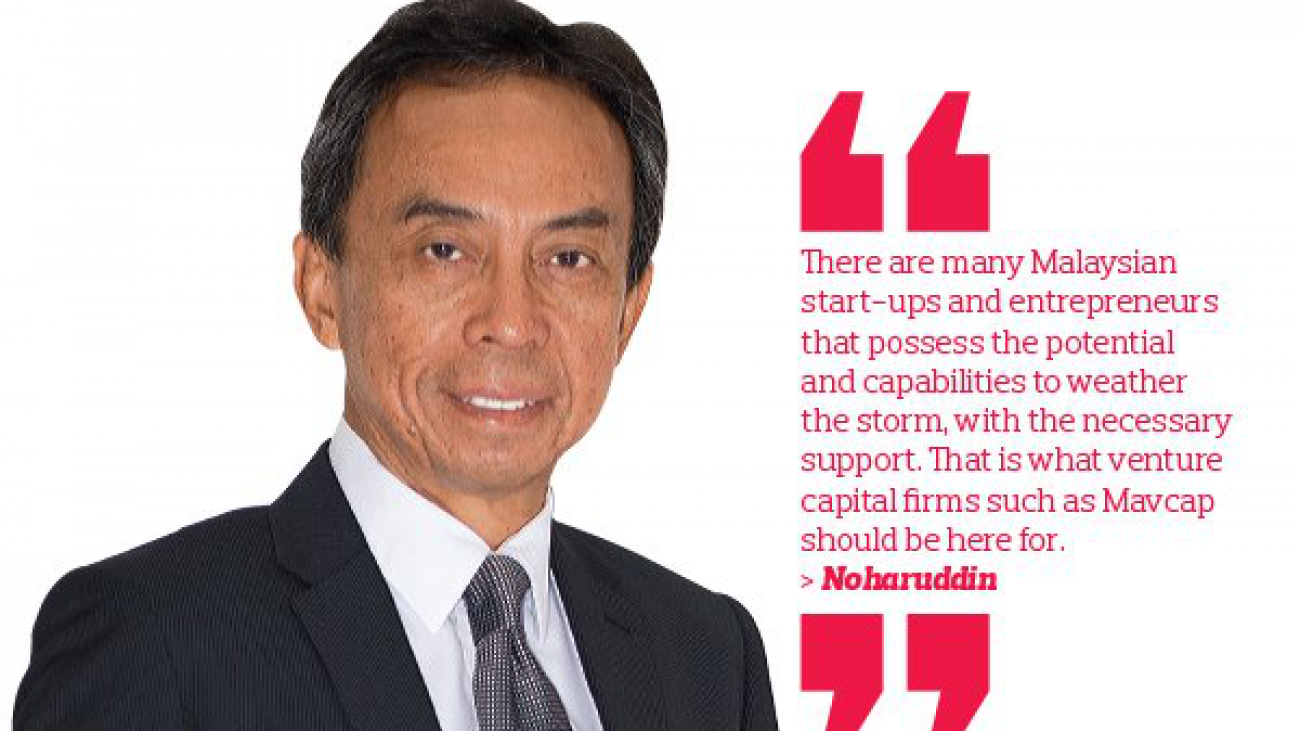Deal-related activity in the venture capital industry may have slowed as a result of the tough economic conditions for many businesses due to the ongoing pandemic. But Malaysia Venture Capital Management Bhd (Mavcap), the country’s largest venture capital firm, is showing no signs of pulling back and intends to keep investing in promising companies amid this landscape.
“Mavcap aims to take this opportunity to continue investing in start-ups. As many institutions will be holding back on new investments, this presents greater opportunities for us and our partner funds,” says acting CEO Shahril Anas.
The venture capital firm is a wholly-owned subsidiary of Minister of Finance Inc.
Private equity (PE) and venture capital activity across Southeast Asia was slow in 1Q2020 amid the Covid-19 pandemic, according to EY’s Private equity briefing: Southeast Asia report published on July 8. A total of 141 deals worth US$1.4 billion were announced during the quarter — a decline of 9% and 65% in aggregated volume and value respectively — compared with the previous corresponding period.
The impact of the pandemic has been different for each company and industry, says Mavcap chairman Datuk Noharuddin Nordin. Some companies will find that the situation is benefiting their businesses while others will find their market dwindling or totally disappear. While this is a challenging time, it is also an opportunity for companies to showcase their capabilities.
“Most companies can perform in good times. But when the times are tough, [only] resilient companies are able to survive and subsequently thrive. There are many Malaysian start-ups and entrepreneurs that possess the potential and capabilities to weather the storm, with the necessary support. That is what venture capital firms such as Mavcap should be here for,” says Noharuddin.
Mavcap has been monitoring and guiding its portfolio companies to adapt and navigate through the pandemic. This can be seen through the collaborative partnerships between start-ups, corporations, government agencies and investors. One example is the collaboration between drone-as-a-service company Aerodyne Group and the Royal Malaysian Police to operate drones for surveillance and enforcement during the second phase of the Movement Control Order period.
The firm is currently helping its investee companies to pivot their businesses. For example, the expansion of parcel delivery service EasyParcel into Pgeon and TheLorry’s new service to deliver other products such as groceries.
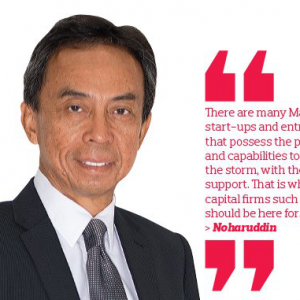
“The environment has changed and all businesses must adapt, including the venture capital industry. There are tremendous opportunities for venture capitalists (VCs) who are smart and nimble enough to identify them. This is not a time for VCs to retreat, but a time to refocus,” says Noharuddin.
“Exit strategies will have to be different. Previously, getting listed was the dominant exit strategy. However, we have seen financial markets across the globe being hammered by the impact of the Covid-19 pandemic and other economic factors. It is time for investors and start-ups to look for creative exit strategies.”
Mavcap believes there will continue to be significant opportunities in the market among sound entrepreneurs with viable business models, even amid the challenging environment. Consequently, the firm intends to continue investing in such companies through its funds.
Noharuddin points out that historically volatile periods such as wars, economic downturns and natural disasters normally precipitate a surge in innovation. Hence, businesses will be looking at new ways of doing business post-pandemic.
“As Mavcap participates in this sandbox of technology companies and is nurturing companies in this field, we believe there will be many opportunities ahead for SMEs (small and medium enterprises) to leverage innovation and cater for the changing lifestyles that the pandemic has brought, and will bring, about. This includes working from home, online shopping, last-mile delivery in Malaysia and the whole ecosystem that goes with it. Other areas will also open up,” says Noharuddin.
Mavcap has remained active since the beginning of the year. It has invested in two funds, the first being the Asia Greentech Fund I. The newly launched fund is set to invest in companies operating in the green energy sector such as those involved in solar energy, hydro energy, waste-to-energy and other green energy projects in Asia. The fund was established in partnership with Asia Greentech Capital Ltd (a Malaysia and Hong Kong-based venture capital firm) and Cardina International as the initial investor.
In early May, it was announced that Mavcap had invested in LuneX Ventures, a seed-stage blockchain fund by LuneX and Golden Gate Ventures. Launched in 2018, the fund is dedicated to accelerating the adoption of blockchain across Southeast Asia through funding and supporting homegrown global entrepreneurs. The portfolio companies include smart contract-powered derivatives trading platform Sparrow Exchange, cryptocurrency wallet provider BlueWallet and digital asset custody solution provider Propine Capital.
Evolution of the funding model
Mavcap has come a long way since it was established in 2001 with the mandate of developing the nation’s venture capital sector, stimulating the domestic economy and driving greater economic wealth for Malaysia through its support for start-ups, particularly in the tech sector.
The government entity was created following the rise of Silicon Valley as a hub for technology innovation and development. At the time, funding for tech start-ups was scarce with just banks and PE firms providing the financing. Silicon Valley was providing these start-ups with funding and a platform on which to grow. That was how the venture capital model came about and began to thrive.
Recognising the immense potential of cultivating start-ups and entrepreneurs, the Malaysian government established Mavcap to develop the local venture capital scene. The firm has since evolved. Now, it not only focuses on information and communications technology-related companies but also bricks-and-mortar businesses that have progressed to digital platforms such as Fashion Valet, TheLorry and EasyParcel.
The list of ICT-related companies that Mavcap invested in in its early days includes JCBNext Bhd (which runs the JobStreet.com platform), Diversified Gateway Bhd (which runs ISS Consulting Sdn Bhd), Fibon Bhd, Censof Holdings Bhd (which runs Century Software Sdn Bhd) and Aemulus Holdings Bhd. These companies have since gone public and are currently listed on Bursa Malaysia. Meanwhile, its portfolio companies that have been acquired include YouthAsia Sdn Bhd, WebBytes Sdn Bhd, Aexio Sdn Bhd, Tranglo Sdn Bhd and ADA Cellworks Sdn Bhd.
Mavcap also recognised the importance of strengthening Malaysia’s venture capital network to provide greater opportunities for local companies. Thus, its strategy was changed to focus on collaborations with foreign parties and corporate partners to create venture capital funds. This new approach, dubbed the “strategic funds model”, was adopted by the firm in 2013.
This model has enabled it to attract both local and foreign players to invest in the funds created by the firm and its partners. Mavcap’s last direct investment was made in 2016.
In total, the firm has attracted about RM715 million from local and foreign private investors. Most of these funds are still in the investment phase, says Shahril.
Through its partnership with California-based seed accelerator 500 Startups, Mavcap invests in three early-stage funds, namely 500 Durians, 500 Durians II and 500 Startups III. The first two focus on ICT and internet technology companies in Southeast Asia while the latter invests in companies in the consumer space and small internet-related businesses. 500 Startups is the world’s most active global venture capital firm, having backed more than 2,400 companies in more than 75 countries.
Axiata Digital Innovation Fund is another fund Mavcap has invested in. The local fund, which was formed in collaboration with Axiata Bhd and Johor Corp, focuses on business-to-consumer (B2C) and business-to-business (B2B) internet companies as well as industry disruptors. The fund is managed by Intres Capital Partners, a venture capital firm formed through a partnership between Mavcap, QuestMark Capital Management Sdn Bhd and Teak Capital Sdn Bhd.
The firm has partnered Asian venture capital firm Gobi Partners for the Gobi Mavcap Asean Superseed Fund, the Meranti Asean Growth Fund, the Gobi Fund III as well as the Malaysia Superseed Fund II. These funds focus on early-stage, series B and series C funding. Founded in 2002 in Shanghai, Gobi Partners now has 11 offices across the globe. It has invested in more than 260 companies and recorded 13 exits in 2018 and 2019.
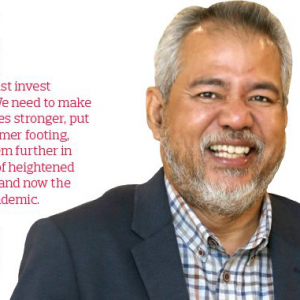
Through these partnerships, Mavcap invests in high-growth companies, some of which have become unicorns (valued at more than US$1 billion). The unicorns include Singapore-based Grab, Australia-based Airwallex, US-based Knotel and Indonesia-based Bukalapak. The other investee companies of the funds include Carsome, EasyParcel, Aerodyne, Fave, TheLorry, Carousell, Signature Markets and Travelio.
The nature of the venture capital industry has always been different from PE investments or funding from banks, Shahril notes. The venture capital industry is focused on equity and the development of start-ups, with a view to exit at the best possible yield for the fund. The equity risk is much higher than a loan risk, he points out.
“Mavcap takes the risk of investing in early-stage companies with a minimal track record, products, market and technology, with the aim of growing the value of these companies. Financial institutions and other investors are not willing to take these risks,” says Shahril.
“This is a key challenge. However, Mavcap continues to fund and support these companies, especially in recent years when we have journeyed with them on top of providing them with funding. We have assisted and provided guidance in all aspects of their business, including finance, marketing, operational efficiency and value chain management, with a view to making them more successful in order to land at the appropriate seeding to exit the business.”
Even when Mavcap does exit, it still follows up on the investee companies for the next two years as it does not want them to fail or collapse after it leaves, he says. “We still provide guidance and counsel to strengthen their business model, especially as competition heightens and disruptions are a given in business these days.”
Spurring the growth of the local market
In 2001, there were not many venture capital players in Malaysia. Thus, the funds available for start-ups were limited. The private sector was not interested in the venture capital industry owing to its high-risk nature and the fact that these investments were not classified as an asset class, says Shahril.
Programmes undertaken by Mavcap have created more than 50 fund management personnel and a number of local venture capital firms, spurring the domestic ecosystem. Over the years, this has resulted in greater participation by the private sector. “To date, we have seen more participation from the private sector locally and internationally in our fund portfolios. This has increased the pool of funds available to viable local start-ups,” says Shahril.
“Continuous engagement with the private sector has resulted in more corporate venture capital firms being established, which is a positive sign of spurring the local ecosystem with more funds and personnel available. It is part of Mavcap’s mandate to develop the ecosystem in support of start-ups, entrepreneurs and personnel.”
Some market observers have pointed out that there are still major obstacles to a vibrant venture capital industry in Malaysia, including a lack of diversity as well as scarce investment opportunities. Noharuddin disagrees, saying that there are numerous opportunities in the domestic industry.
He points out that Mavcap has invested in and propelled several homegrown companies in diverse sectors such as financial technology (fintech), e-commerce, logistics, drone-as-a-service, software-as-a-service, artificial intelligence and health technology. This is reflective of the fact that there are many opportunities in the Malaysian market, he adds.
“We have to be prudent and objective to unlock these gems of opportunities. One of the objectives of our approach to partnering private investors is exactly that. We believe that there is a lot of diversity and plenty of investment opportunities in Malaysia. With the help of our partners in the private sector, we plan to identify and tap into these opportunities,” says Noharuddin.
In a report published by DealStreetAsia in March, it was found that Singapore-based VCs accounted for 58% of the total funds raised in the region last year, followed by Indonesia (16%) and Malaysia (13%). In a more recent report (dated May 19), the company noted that Singapore and Indonesia had dominated the venture capital market with total fund closings of US$865 million and US$161 million respectively in the first three months of the year. No closings were recorded in Malaysia during the period. Can the country’s venture capital industry overtake those of Singapore and Indonesia?
Noharuddin says that at this juncture, Indonesia may retain its No 2 position. This could be due to investors favouring its market size, observed in the number of start-ups offering fintech services. He explains that the majority of Indonesians are unbanked and fintech companies deliver the most value to this segment, making that country a larger market to service.
“However, this may not be the strongest factor for investors as Singapore is smaller than both Malaysia and Indonesia with a population of only 5.6 million, compared with Malaysia’s 31 million and Indonesia’s 267 million. The key differentiator with Singapore is its favourable investment ecosystem and ease of doing business for start-ups,” says Noharuddin.
He says factors that would allow Malaysia to overtake Singapore and Indonesia in terms of funds raised would be through greater participation from the private sector, by enhancing the integration of local start-ups with the Asean market and by increasing the ease of doing business through a legal framework in Malaysia.
“Malaysia can certainly be the premium place to raise venture capital funds. As mentioned, Indonesia is perhaps placed second because of the sheer size of its domestic market and this is deemed to translate into business opportunities,” says Noharuddin.
“Singapore does not have the same size of domestic market, but there is a perception that the city state is the best place to do business, especially for financial-related companies. Malaysia definitely has a larger domestic market than Singapore, but its financial sector does not enjoy the same reputation. It is very much an issue of perception.”
Often, the decision to operate in a particular country is not influenced by business factors alone. Noharuddin says a good example of this is the fact that a major international venture capital company decided to set up an office in Malaysia purely because one of the founders liked the living environment in this country. Of course, the good investment opportunities also helped, he adds.
“This is where Mavcap can help. We aim to support the government in debunking negative or misconstrued perceptions of Malaysia. Being close to both the demand and supply sides of the market, we can provide useful inputs to policymakers in relation to the soft infrastructure for venture capital, including policies and the legal aspects of the ecosystem,” says Noharuddin.
Adapting and being responsive to changes in the market is vital to remain relevant and effective. In line with this, Mavcap is now focused on accessing funds available in the market and relying less on funds from the government and taxpayers.
“Rather than investing taxpayers’ money in risky start-ups, Mavcap is now predominantly creating funds and inviting private funds, both local and international, to invest in these funds and using the funds created to invest in start-ups,” says Noharuddin.
This approach has two clear advantages. First, as Mavcap does not make direct investments, there is less reliance on the government and taxpayers’ money. Second, the start-ups are naturally subject to the disciplines of the market as the funds are raised by investors, who expect good returns. In other words, they have to be operating a successful business.
“We consistently leverage the expertise and experience we have in our arsenal to achieve desired returns. Through our local and international partnerships, many parties contribute insightful ideas to achieve this and we believe that if this is carried out in other venture capital entities, the outlook ahead is promising for Malaysia’s venture capital sector,” says Noharuddin.
Providing the right support
Mavcap is the largest government-owned entity, with a total portfolio value of about RM5 billion in the funds that the firm and its private sector partners manage. Going forward, it will focus on developing the venture capital sector by bringing together the expertise and talents of its partners to nurture and strengthen the companies it invests in.
“We cannot just invest financially. We need to make the companies stronger, put them on a firmer footing, to launch them further in the context of heightened competition and now, the Covid-19 pandemic, which will have a disastrous impact on a number of sectors,” says Shahril.
As for his advice to venture capital investors in the country, Noharuddin says the market will continue to be challenging. SMEs, especially in the tech realm, will see a tough period ahead. Nevertheless, there are many Malaysian start-ups and entrepreneurs that have the potential and capabilities to ride out the storm with the necessary support.
He adds that investors should be mindful that it is not all about e-commerce. While the mode and method may change, the products have to be manufactured as well as delivered. These are opportunities for start-ups to discover and address.
“In Malaysia, there are many high-net-worth individuals who have made their millions or billions in traditional industries such as mining, timber, construction and property development. It is time for the VCs to assist start-ups in the newer sectors,” says Noharuddin.
Ultimately, the right support must be extended to start-ups because these companies will define the future of a country, he adds. “It requires a lot of knowledge and effort to identify and support the right start-ups. At Mavcap, our goal is to ensure that the right support is extended to the right start-ups, so that our nation and the rakyat will benefit from their success.”
On the outlook for Malaysia’s venture capital industry, Noharuddin says three challenges remain. The first is ensuring that the government continues to provide for venture capital funds, considering the numerous demands on the government’s coffers. The second is to seek out good deals and the third is securing venture capital funds from the private sector.
“Mavcap is willing to take on these challenges. The market will judge us on our readiness. What is important is that all of our strategies are geared towards preparing ourselves to face any circumstances,” he says.



